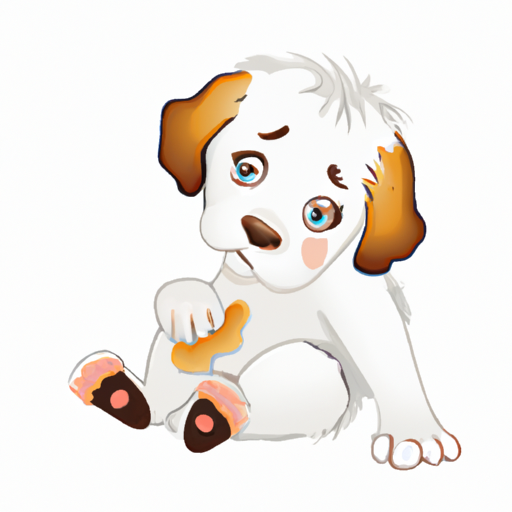Introduction
As a caregiver, you might have noticed that your adorable little puppy is not so little anymore. You may have found tiny teeth scattered around your home or noticed a difference in your puppy’s chewing habits. This could leave you wondering, do puppies lose their baby teeth?
The answer is yes, just like human babies, puppies also lose their baby teeth. This process is also known as “teething”. This article will guide you through the entire process, what to expect, and how you can help your puppy during this time.
Understanding Puppy Teething
Teething is a natural process that all mammals go through. It’s the transition from baby teeth, also known as deciduous teeth, to permanent adult teeth. For puppies, this process can be uncomfortable and may even cause them to change their eating and chewing habits.
- Baby Teeth: Puppies are born without teeth. They start to get their baby teeth around 3 to 4 weeks of age. By 6 to 8 weeks, they usually have a full set of 28 baby teeth.
- Teething Process: The teething process typically starts around 12 to 16 weeks of age. During this period, the baby teeth start to fall out, and the adult teeth begin to grow in.
- Adult Teeth: By the time your puppy is about 6 to 7 months old, they should have all 42 of their adult teeth.
Signs of Puppy Teething
As a caregiver, it’s important to recognize the signs of teething in your puppy. This will allow you to provide the necessary support and care during this uncomfortable time.
- Increased chewing: Your puppy may start chewing on furniture, shoes, or anything else they can get their paws on.
- Drooling: You might notice an increase in drooling.
- Missing teeth: You may see gaps in your puppy’s mouth where teeth used to be.
- Red, swollen gums: Your puppy’s gums may look red and swollen.
How to Help Your Teething Puppy
There are several ways you can help make your puppy’s teething process more comfortable:
- Provide Chew Toys: Chew toys can help relieve the discomfort. They also protect your furniture and shoes from your puppy’s increased need to chew.
- Feed Soft Foods: During teething, your puppy’s mouth can be very sensitive. Feeding them soft foods or soaking their dry food in water can help.
- Avoid Rough Play: Avoid games that involve pulling on your puppy’s mouth as it could hurt their sensitive gums.
What to Avoid During Puppy Teething
While it’s important to know what to do, it’s equally important to know what not to do during your puppy’s teething period.
- Don’t Pull Loose Teeth: If you see a loose tooth, resist the urge to pull it. This could cause pain or even an infection.
- Avoid Hard Toys: Hard toys could damage your puppy’s new teeth. Stick to soft, chewy toys instead.
- Don’t Ignore Excessive Bleeding or Redness: If you notice excessive bleeding or redness in your puppy’s mouth, it’s time to consult a vet.
When to Consult a Vet
While teething is a normal process, there are times when you should seek veterinary help:
- If your puppy seems excessively uncomfortable or in pain
- If you notice any teeth that appear broken or damaged
- If your puppy’s adult teeth are coming in before the baby teeth have fallen out
FAQ
Do all puppies lose their baby teeth?
Yes, all puppies lose their baby teeth. This is a normal part of their development.
When do puppies start losing their baby teeth?
Puppies usually start losing their baby teeth around 12 to 16 weeks of age.
How long does the teething process last for puppies?
The teething process generally lasts until the puppy is about 6 to 7 months old when all of their adult teeth should have grown in.
What can I do to help my puppy during teething?
You can provide chew toys, feed soft foods, and avoid rough play. If your puppy seems very uncomfortable or in pain, consult a vet.
What should I avoid during my puppy’s teething process?
Do not pull loose teeth, avoid hard toys, and do not ignore excessive bleeding or redness. If any of these occur, consult a vet.
Should I consult a vet during my puppy’s teething process?
While teething is a normal process, if your puppy seems excessively uncomfortable or in pain, or if you notice any teeth that appear broken or damaged, you should consult a vet.
Understanding your puppy’s teething process can help you provide the best care during this time. Remember, every puppy is unique, so their teething process might not look exactly like another puppy’s. The most important thing is to provide support and love during this uncomfortable time.



